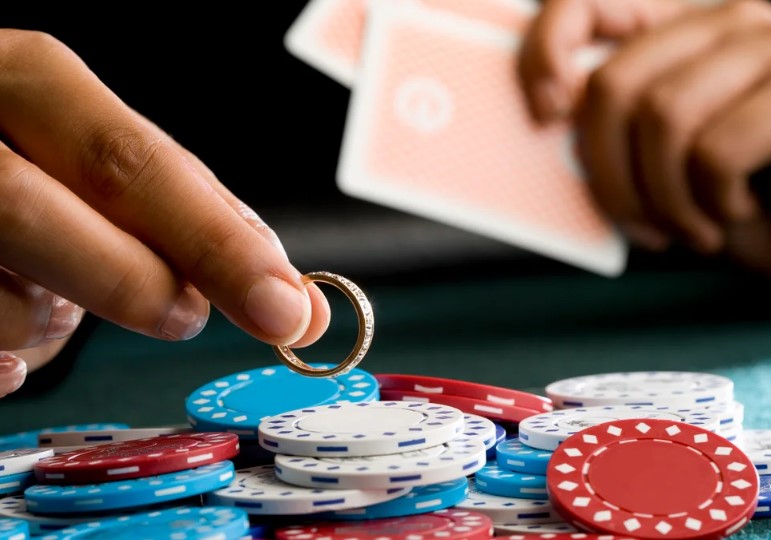Gambling addiction, also known as compulsive gambling or gambling disorder, is a serious condition that can have devastating effects on individuals and their families. While gambling can be a fun and enjoyable activity for many people, for others, it can spiral out of control and lead to financial ruin, relationship problems, and other negative consequences. In this article, we will explore the dark side of gambling addiction, including its signs and treatment options.
What is Gambling Addiction?
Gambling addiction is a type of behavioral addiction characterized by an uncontrollable urge to gamble despite negative consequences. People with gambling addiction may gamble with increasing amounts of money in an attempt to recoup their losses, lie to conceal the extent of their gambling, and experience restlessness or irritability when attempting to cut back or stop gambling.
Signs of Gambling Addiction
There are several signs that may indicate someone has a gambling addiction. These include:
- Preoccupation with gambling
- Needing to gamble with increasing amounts of money to achieve the desired excitement
- Restlessness or irritability when attempting to cut back or stop gambling
- Using gambling as a way to escape problems or relieve feelings of helplessness, guilt, or anxiety
- Lying to conceal the extent of gambling
- Committing illegal acts, such as theft or fraud, to finance gambling
- Jeopardizing or losing a significant relationship, job, or educational or career opportunity because of gambling
- Relying on others to provide money to relieve a desperate financial situation caused by gambling
The Impact of Gambling Addiction
Gambling addiction can have serious consequences on a person’s life, including:
- Financial problems, including bankruptcy, debt, and poverty
- Relationship problems, including divorce and strained relationships with family and friends
- Emotional issues, such as depression, anxiety, and suicidal thoughts
- Legal issues, including criminal charges related to theft or fraud
- Social isolation and loneliness
Factors Contributing to Gambling Addiction
There are several factors that may contribute to the development of gambling addiction, including:
- Genetic predisposition
- Brain chemistry and neurotransmitter imbalances
- Psychological factors, such as stress, trauma, or mental health disorders
- Social factors, such as peer pressure or the influence of family members
Treatment Options for Gambling Addiction
Fortunately, there are several treatment options available for gambling addiction. These may include:
- Counseling and therapy, such as cognitive-behavioral therapy (CBT) or motivational interviewing (MI)
- Medications, such as antidepressants or mood stabilizers
- Support groups, such as Gamblers Anonymous
- Self-help strategies, such as setting limits on gambling or avoiding places where gambling occurs
Support and Resources
If you or someone you know is struggling with gambling addiction, it’s important to seek help. There are many resources available, including:
- National Council on Problem Gambling (NCPG)
- Gamblers Anonymous (GA)
- National Helpline for Problem Gambling
Conclusion
In conclusion, gambling addiction is a serious condition that can have devastating effects on individuals and their families. It’s important to recognize the signs of gambling addiction and seek help if you or someone you know is struggling. With the right treatment and support, it is possible to overcome gambling addiction and lead a healthy, fulfilling life.
FAQs
- Is gambling addiction a real disorder?
- Yes, gambling addiction is recognized as a disorder by the American Psychiatric Association (APA) and other mental health organizations.
- Can gambling addiction be cured?
- While there is no cure for gambling addiction, it can be managed with the right treatment and support.
- What should I do if I think I have a gambling problem?
- If you think you have a gambling problem, it’s important to seek help from a qualified professional, such as a counselor or therapist, who can help you develop a treatment plan.
- Are there medications that can help with gambling addiction?
- Some medications, such as antidepressants or mood stabilizers, may be used to help manage the symptoms of gambling addiction.
- Where can I find more information about gambling addiction?
- You can find more information about gambling addiction from organizations such as the National Council on Problem Gambling (NCPG) or Gamblers Anonymous (GA).

